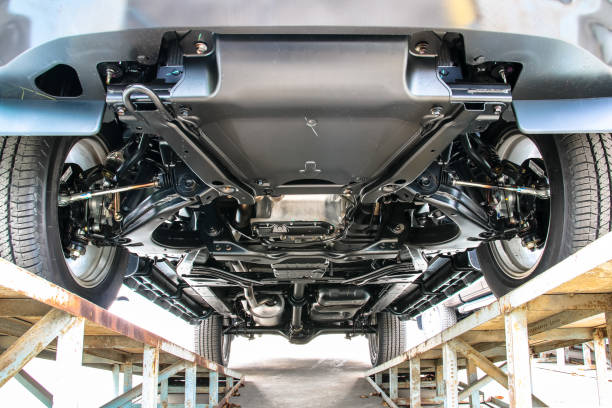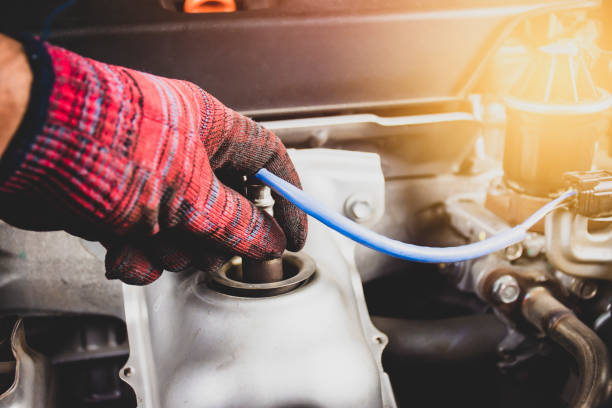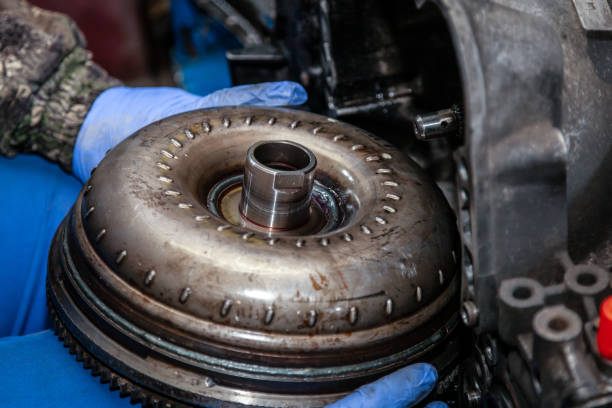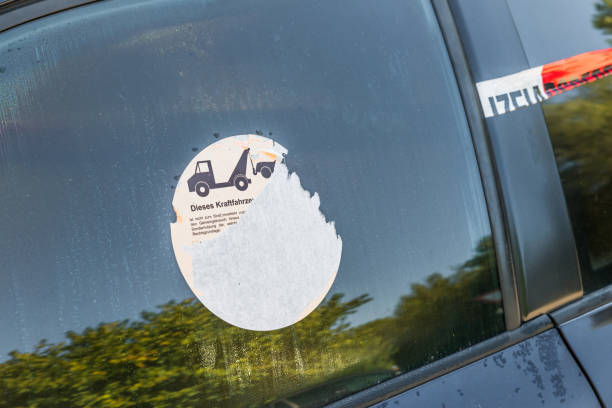
It’s never a comfortable feeling when you’re driving down the road and start to hear something rattling around every time you depress the gas pedal. Your mind immediately jumps to the worst possible outcome when there’s a good chance it’s a simple fix that you’re overlooking.
That’s why we came up with this guide to walk you through everything you need to know to track down the rattling noise in your car – before you start tearing everything apart. Whether the problem is small or large, we’ll help you find it here.
Pinning Down the Rattling Noise
Before we can help you find the exact cause of the rattling in your car, you need to help yourself by tracking down where the noise is coming from. Start by trying to track down the location of the rattling sound when accelerating at low speed.
This will help minimize the amount of noise coming from other components like your engine and transmission. If you can’t hear the problem when accelerating slowly, go ahead and accelerate quicker.
Keep the windows down when doing this, and recruit a friend to sit in the passenger seat to help you pinpoint the noise. If you can’t track down the source of the problem inside the vehicle, have someone stand outside the vehicle and see if they can’t hear it when you’re driving by.
Under the Vehicle
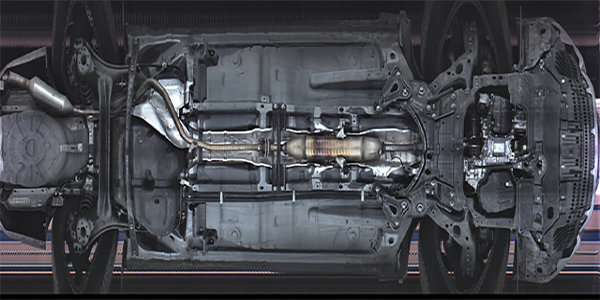
If the sound is coming from underneath your vehicle, there are only a few potential causes. Still, if you can get your vehicle on a lift to get a better look, this is the time to do it. Start at the rear of your vehicle and work your way forward.
- Loose Exhaust Components
From heat shields to clamps and hangers, tons of components can come loose around your exhaust. Over time these components will rust, which leads to them falling down a bit where they can rattle around.
Take a good look at all the components around your exhaust and ensure that everything is still right where it belongs. Don’t be afraid to reach up and move things around to see if they’re firmly in place but ensure that the exhaust isn’t hot when you’re doing this.
- Broken Catalytic Converter
As catalytic converters age, the internal components can start to wear down. When this happens, it can make a rattling noise as you drive. It’s a unique sound that any mechanic can recognize right off the bat.
If you have a rattling noise inside your catalytic converter, it’s time to replace it; there is no way to repair this problem.
- A Prank
If you have some witty friends, they might’ve thrown some zip ties around your driveline to watch you freak out at the noise whenever you drive around. When you’re underneath your vehicle, this is extremely easy to check. Just take a look at the driveline, if you see anything wrapped around the driveline, go ahead and take it off and the problem will likely go away.
From a Wheel Well
If the rattling noise you’re hearing is coming from the wheel well, take the time to track down which specific wheel well it’s coming from. While there are a few potential causes in the wheel well, the overall area is small, so it’s relatively easy to rule everything out in one go.
- Loose Suspension or Steering Components
There are tons of steering and suspension components around each wheel well that you need to inspect if you hear a rattling noise. From the tie rod ends to the struts, take the time to inspect each component closely.
You need to ensure that each component is firmly mounted and that there aren’t any broken parts. If there is any play in the components, there’s a good chance you’ve found the problem.
- Damaged or Loose Wheel Bearings
Inside of each wheel hub, there are bearings. While you don’t hear anything from those bearings when everything is working as it should, you can hear a rattling sound while driving when they’re damaged.
To check your wheel bearings, jack up the one wheel and leave the tire on. If it’s the front tire, have someone hold the brakes while you shake the tire from the outside. If the tire moves, you need to repack and inspect the wheel bearings.
If it’s the rear wheel, you check it the same way, but you can also apply the parking brake if you don’t want to have someone hold the brakes for you.
Keep in mind that if your wheel bearings make a rattling noise while driving, they are extremely damaged and no longer safe to drive on. Therefore, you will need to replace these wheel bearings.
- Incorrectly Installed Brake Components
Everything in the brake system needs to sit flush against the next component. But if someone incorrectly installed something, then you may hear some chatter when driving. So when inspecting the various brake components, make sure that your vehicle has all the correct components installed, and everything sits flush.
If the problem is brake chatter, you need to address it right away. While some owners pass this off as a minor thing, what it means is that your brakes are working correctly, and that can be the difference between stopping safely and getting into an accident.
In the Engine Bay
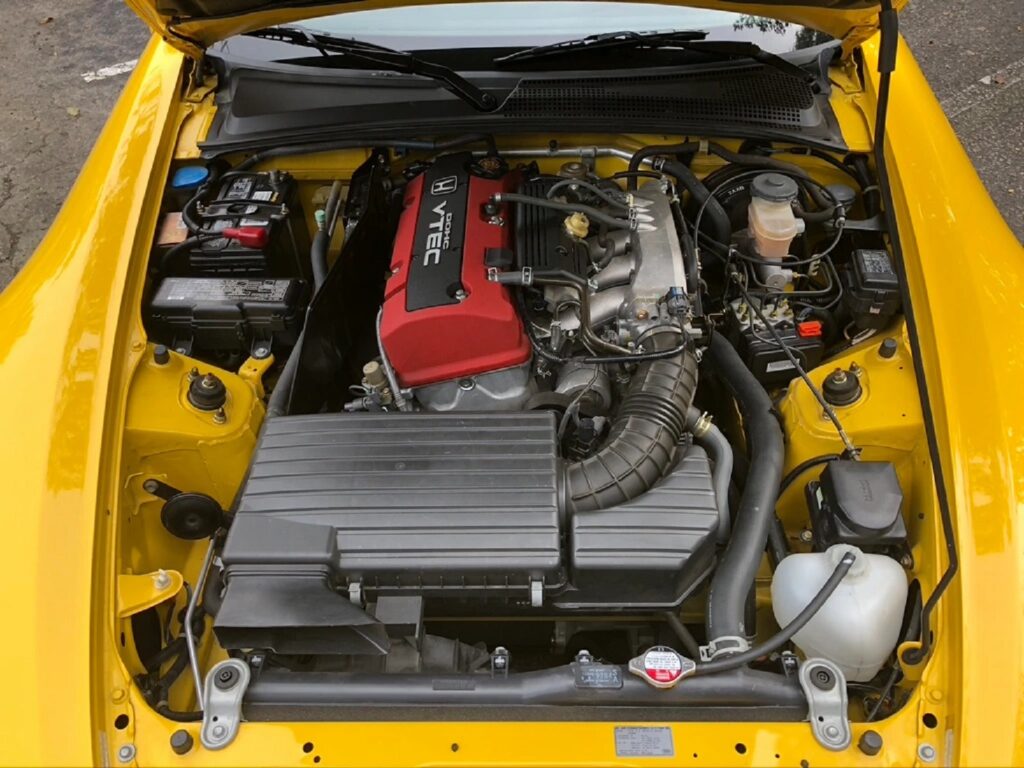
If you pop open the hood and hear a rattling noise, the problem is coming from the engine bay. However, it’s unlikely that you’ll only hear the rattling noise while accelerating. More likely, the noise will just get louder as you accelerate. But what could the rattling noise be? We’ll highlight the three most likely causes here.
- Loose Pulleys
One of the most common causes of a rattling noise coming from the engine bay is a loose pulley. Finding a loose pulley is relatively simple. All you need to do is spray some WD-40 on the pulley with the engine running.
First, the chatter should get much louder as the WD-40 works its way in. Eventually, the noise will quiet down and might even go away entirely. However, even if the noise disappears, that doesn’t mean you fixed the problem.
Double-check that the pully is tight. If it is, then you might need to replace the pulley if the chatter comes back. However, if it was a little loose, you’ve found the problem, and you should be good to go after tightening everything up!
- Damaged Accessory Component
Your engine has tons of accessory components. From the A/C compressor to the alternator and even the power steering pump, tons of components can make a rattling noise when they break.
If the rattling noise is coming from a specific component, you should be able to track down the exact area the noise is coming from, and that should help you pinpoint the problem a bit.
- Internal Engine Problems
While this is a little rarer, it can certainly happen. The easiest way to check if the noise is coming from the engine itself or an accessory component is to take off the drive, and all accessory belts, then start the engine.
If the noise is still coming from the engine bay with all the belts off, it’s an internal problem. If it goes away, you’ve dodged a bullet, and the engine itself is fine. Don’t keep the engine running for an extended period of time like this though, since you don’t have the water pump hooked up, the engine will quickly overheat without the drive belt on.
Inside the Cab

The final location you might hear the rattling sound from is inside the car itself. If the noise is coming from inside the cab, chances are it’s nothing major – but it can still drive you nuts. So, what’s likely causing the rattling noise inside the cab? We’ll let you know here.
- Something Rolling Around
The most likely cause of a rattling sound from the inside of your cab is something rolling around underneath the seat or some loose change buried in a cup holder or in the dash. You’d be surprised how often this happens.
You hear a rattling noise in your car and your mind automatically jumps to the worst possible outcome. But once you take a deep breath and calm down, you might find an old Gatorade bottle or something else rolling around where you can’t see it.
Final Thoughts
Once you track down where the noise is coming from, it’s all a matter of staying calm and taking a look around. Hopefully, this guide gave you a better idea of where to start your search and ultimately helped you find your rattling noise.
If not, it’s time to take your vehicle to the shop. A rattling noise might be something minor, but it could also indicate a deeper problem that you don’t want to ignore.





